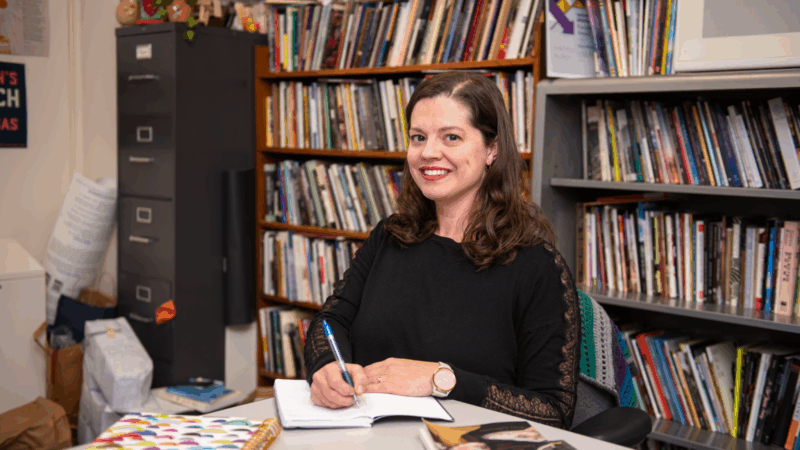K-State professor’s research brings light to cybercrime challenges.
Kevin Steinmetz, a criminology professor in the College of Arts and Sciences, sees the real impact of cybercrime’s growth every day.
Through his study funded by the National Science Foundation and an in-progress book, Steinmetz explores behind the scenes of digital-age law enforcement, shedding light on the culture of cybercrime policing and the challenges investigators face.
What is the biggest challenge officers face?
Investigations are usually thought of as straightforward — get the case, make an arrest, go to trial. But in many cybercrime units, officers have to work their cases while also processing digital evidence for other units.
There is a huge amount of raw evidence to process, and there are far more cyber tips than they could ever work through, so they have to prioritize cases. It’s a pretty big burden to bear, and the high expectations can lead to burnout.
What did you see as the biggest factor of success for a cybercrime unit?
Unsurprisingly, the amount of support they’re getting. Many officers said their biggest frustration was splitting their time and attention.
One system we saw positive results in is the civilianization of policing, where tasks like digital forensics analytics are delegated to civilian employees.
Departments that implement this can let their officers focus their energy more on the investigative side of things instead of having to wear both forensic and investigative hats.
What gaps do you think still exist in cybercrime investigation?
A lot of officers that we talk to are earnestly committed to working on these cases, so any shortcomings are really systematic. But the truth is that with the volume of cybercrime, many kinds are put on the back burner.
Certain crimes, like those against children, get lots of resources and attention. While those cases are incredibly important, most local stations don’t have the resources to help with other kinds of cases like fraud.
There are a lot of cases that fall through the cracks because of lack of expertise or just lack of resources, whether that’s time or finances.
How do you see your research shaping the world of cybercrime?
My objectives are relatively modest. At this point, many studies out there are survey research, which is fine, but it tends to be superficial.
Because of this, we decided to focus on this qualitative stuff, where we could look at the big picture and see where the data led us. I’m hoping that people will take our insights and use them to shape future surveys and do additional studies.
That’s not to say I don’t think we could advance policy guidelines. For example, a lot of our data pointed toward the benefits of using civilian investigators, allowing departments to have well-trained officers but avoiding overworking or overwhelming them.
Written By: Abbigail Marshall





